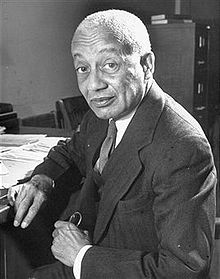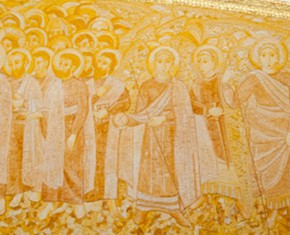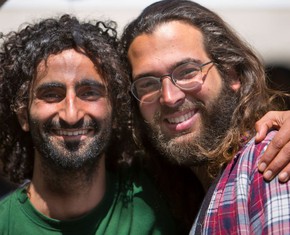The views expressed in our content reflect individual perspectives and do not represent the authoritative views of the Baha'i Faith.
O my God, the God of bounty and mercy! Thou art that King by Whose commanding word the whole creation hath been called into being; and Thou art that All-Bountiful One the doings of Whose servants have never hindered Him from showing forth His grace, nor have they frustrated the revelations of His bounty. Suffer this servant, I beseech Thee, to attain unto that which is the cause of his salvation in every world of Thy worlds. Thou art, verily, the Almighty, the Most Powerful, the All-Knowing, the All-Wise. – Baha’u’llah, Baha’i Prayers, p. 146.
Nearly every morning, I pray this prayer, both in English and in the original Persian. Why? Because of my childhood.
I grew up as a Christian. I heard more “fire and brimstone” sermons than I care to recount. They scared the hell out of me as a kid! I feared for my soul. In other words, I was concerned about my salvation.
Many, if not most, Christians also regard their personal salvation as paramount. When I first investigated the Baha’i Faith, what worried me most was forfeiting my salvation if I became a Baha’i.
Then I began to understand that salvation is not simply personal. Yes, it is individual–but it is also collective. There is such a thing as “social salvation.” In Christian terms, that’s the “Gospel” of the Baha’i Faith, expressed beautifully in a letter from Abdu’l-Baha. Let’s refer to this as the “Tablet of Salvation.” Here is a provisional translation:
O thou who art happy with the glad tidings of divine bestowal! There are those who believe that the cause of salvation is none other than a confession of Divine Unity. There are those who say: This is not sufficient. Belief in Divine Unity must be combined with righteous deeds as prescribed by the All-Merciful. There are still others who aver that the above must be combined with a most praiseworthy character blessed by God. And yet again there are those who assert that one must encompass all the grades of spiritual perfection and attain the beauty of an inner conscience before one can be truly saved. But undoubtedly, what is most certain, most sure and incontrovertible, what the People of God cling to most confidently is that the true cause of salvation is none other than steadfastness in the Testament and firmness in the Covenant of the All-Merciful. This faithfulness is the particular characteristic of our belief in the Supreme Manifestation of God in this Day. This is the truth enshrined in the safeguarded Mystery of this Cause and verily, in this faithfulness can be found all the other grades and standards of salvation. – Provisional translation by Khazeh Fananapazir. Read the original Persian text
Interesting, isn’t it? Here’s a synopsis of the essence of the “Tablet of Salvation“:
- Belief in the oneness of God. (Salvific belief.)
- Good works. (Salvific action.)
- Sterling character. (Salvific sanctification.)
- Inner transformation. (Salvific beatitude.)
- Faithfulness to the Covenant. (Salvific solidarity.)
These “types of salvation” are cumulative in character, and they involve not only the individual, but the entirety of humanity. They are all facets and dimensions of salvation. Here, Abdu’l-Baha propounds a fascinating holistic theory of salvation, meant to apply to each person and to all people.
In theology, the study of religious doctrines of salvation is called “soteriology.” Essentially, soteriology studies the covenants between God and human beings. In Baha’i terms, what does “Covenant” mean?
This profound topic has inspired entire books. For most Baha’is the Covenant signifies Baha’i unity, as preserved by the successive leadership, interpretation and authority of Baha’u’llah (from 1863 to 1892), Abdu’l-Baha (from 1892 to 1921), Shoghi Effendi (from 1921 to 1957), and the Universal House of Justice (from 1963 to present). As Abdu’l-Baha succinctly puts it:
The Baha’is are commanded to establish the oneness of mankind. If they cannot unite around one point, how will they be able to bring about the unity of mankind? – Selections from the Writings of Abdu’l-Baha, p. 209.

A corollary of this teaching is faithful obedience to Baha’i decision-making–through elected, consultative Baha’i councils that oversee the well-being and progress of Baha’i communities worldwide–as well as faithful adherence to Baha’i precepts and ethics.
Yet a broader dimension exists in the Baha’i idea of “Covenant” as well: world peace and unity.
In an unpublished manuscript I discovered in the archives at Howard University, Baha’i philosopher Alain Locke (who became the first African American Rhodes Scholar in 1907 and who later embraced the Baha’i Faith in 1918), wrote on social salvation:
The gospel for the Twentieth Century rises out of the heart of its greatest problems,— and few who are spiritually enlightened doubt the nature of that problem. The clashing ominous [t]est of issues of the practical world of today,— the issues of race, sect, class and nationality, all have one basic spiritual origin, and for that reason, we hope and believe one basic cure. . . .
The redemption of society, social salvation, should have been sought after first. The pragmatic test and proof of the fatherhood of God is after all whether belief in it can realize the unity of mankind; and so the brotherhood of man, as it has been inspirationally expressed. “Oneness of humanity” must be in our day realized or religion die out gradually into ever-increasing materiality. The salvation we have sought after as individuals in an after-life and another sphere must be striven for as the practical peace and unity of the human family here in this [world]. – Alain Locke, The Gospel for the Twentieth Century.
In 1925, Alain Locke further stated, in a speech:
America’s democracy must begin at home with a spiritual fusion of all her constituent peoples in brotherhood, and in an actual mutuality of life. Until democracy is worked out in the vital small scale of practical human relations, it can never, except as an empty formula, prevail on the national or international basis. Until it establishes itself in human hearts, it can never institutionally flourish. Moreover, America’s reputation and moral influence in the world depends on the successful achievement of this vital spiritual democracy within the lifetime of the present generation. (Material civilization alone does not safeguard the progress of a nation.)
Baha’i Principles and the leavening of our national life with their power, is to be regarded as the salvation of democracy. In this way only can the fine professions of American ideals be realized. – Alain Locke, America’s Part in World Peace, Baha’i Congress at Green Acre, April 1925.
Baha’i salvation, then, is for one and all.
All for one. One for all.
You May Also Like
Comments

















…having made known to us the mystery of His will, according to His good pleasure which He purposed in Himself, that in the dispensation of the fullness of the times He might gather together in one all things in Christ, both which are in heaven and which are on earth– in Him. (Eph 1:9-10)